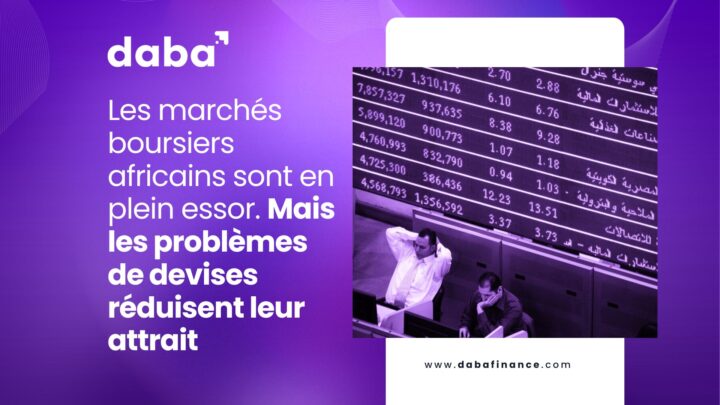While they’re not the only factor to consider when investing, understanding how dividends work can help you make more informed decisions.
In the world of investing, dividends are often touted as a key benefit of stock ownership. Whether you’re a seasoned investor or just starting out, understanding dividends is crucial for building a comprehensive investment strategy.
But what exactly are dividends, and how do they work?
In this article, we provide an answer to that question and more; diving into the world of dividends, exploring their mechanics, benefits, and potential drawbacks to offer insights that can help you make more informed investment decisions.
What Are Dividends?
At its core, a dividend is a distribution of a portion of a company’s earnings to its shareholders.
When a company generates profits, it has several options for using that money. It can reinvest in the business, pay off debt, buy back shares, or distribute some of the profits to shareholders in the form of dividends.
Dividends are typically paid out regularly, often quarterly, although some companies opt for annual or semi-annual distributions.
How Do Dividends Work?
To understand how dividends work, let’s break down the process:
Declaration Date: The company’s board of directors announces the dividend, including the amount per share and the payment date.
Ex-Dividend Date: This is the cut-off date for dividend eligibility. If you buy the stock on or after this date, you won’t receive the upcoming dividend.
Record Date: The company checks its records to identify shareholders of record who will receive the dividend.
Payment Date: This is when the dividend is actually paid to shareholders.
For example, let’s consider a hypothetical scenario with a company listed on the BRVM stock exchange.
Sonatel Senegal (SNTS) announces a dividend of 1.50 XOF per share. If you own 1,000 shares, you would receive 1,500 XOF in dividends when they’re paid out.
Types of Dividends
Cash Dividends: The most common type, where shareholders receive a cash payment.
Stock Dividends: Instead of cash, the company distributes additional shares to its shareholders.
Property Dividends: Rarely, a company might distribute physical assets to shareholders.
Special Dividends: One-time payouts, often when a company has excess cash from a particularly profitable period or asset sale.
Dividend Yield
The dividend yield is a key metric for income-focused investors. It’s calculated by dividing the annual dividend per share by the current stock price. For instance, if a stock trading at 100 XOF pays an annual dividend of 5 XOF, its dividend yield would be 5%.
In African markets, some companies offer attractive dividend yields. For example, as of 2023, Safaricom Plc, listed on the Nairobi Securities Exchange, has historically offered a competitive dividend yield, making it an interesting option for income-seeking investors.
Dividend Payout Ratio
This ratio shows what percentage of a company’s earnings are paid out as dividends.
A lower payout ratio might indicate that a company is reinvesting more in its growth, while a higher ratio could suggest a more mature company focused on returning value to shareholders.
For instance, a company like Guaranty Trust Bank in Nigeria has maintained a balanced approach, offering dividends while also reinvesting in its operations to fuel growth.
The Benefits of Dividends
Regular Income: Dividends can provide a steady stream of income, particularly attractive for retirees or those seeking passive income.
Compound Growth: Reinvesting dividends can significantly boost long-term returns through the power of compounding.
Sign of Financial Health: Regular dividend payments can be an indicator of a company’s financial stability and profitability.
Reduced Portfolio Volatility: Dividend-paying stocks can help stabilize a portfolio, as they often represent more established companies.
Tax Advantages: In some jurisdictions, dividends may be taxed at a lower rate than other forms of income.
Potential Drawbacks
Taxation: Dividends are often taxable, which can impact net returns.
Opportunity Cost: Money paid as dividends isn’t being reinvested in the company’s growth.
Not Guaranteed: Companies can reduce or eliminate dividends if financial conditions deteriorate.
May Indicate Limited Growth: High dividend payouts might suggest a company has limited investment opportunities.
Dividends in African Markets
African stock markets offer interesting dividend opportunities. Many established companies in sectors like telecommunications, banking, and consumer goods have histories of paying regular dividends.
For example, on the BRVM, companies like Orange CI (ORAC) and Societe Ivoirienne de Banque (SIBC) have consistently paid dividends. In Kenya, companies like Safaricom and East African Breweries have maintained dividend policies attractive to income-focused investors.
It’s worth noting that dividend policies can vary significantly across different African markets. While some markets, like South Africa, have more established dividend cultures, others are still developing. This diversity offers opportunities for investors to tailor their strategies to different market dynamics.
Strategies for Dividend Investing
Dividend Growth Investing: Focus on companies with a history of consistently increasing their dividends over time.
High-Yield Investing: Target stocks with above-average dividend yields, but be cautious of yields that seem too good to be true.
Dividend Reinvestment Plans (DRIPs): Many companies offer plans where dividends are automatically reinvested to purchase more shares, accelerating compound growth.
Diversification: Spread investments across different sectors and geographical regions to mitigate risk.
Research Payout Ratios: Look for companies with sustainable payout ratios, typically below 60% for most industries.
Also Read: Investing in Africa: Optimize Your Portfolio With Dividend Yields
Practical Considerations
Tax Implications: Understand the tax treatment of dividends in your jurisdiction. Some countries offer preferential tax rates on dividend income.
Currency Risk: When investing in foreign markets, be aware of how currency fluctuations might impact your dividend returns.
Economic Cycles: Dividend payments can be affected by economic downturns, so consider the broader economic context.
Company Fundamentals: Don’t chase high yields without considering the company’s overall financial health and growth prospects.
Regulatory Environment: Stay informed about regulations in different markets that might affect dividend policies or repatriation of funds.
Getting Your Dividends Investing Strategy Right
Dividends can play a crucial role in an investment strategy, offering a blend of regular income and potential for long-term growth.
While they’re not the only factor to consider when investing, understanding how dividends work can help you make more informed decisions and better align your investments with your financial goals.
African markets present unique opportunities for dividend investing, with many established companies offering attractive yields.
However, as with any investment strategy, it’s essential to do thorough research and consider your individual financial situation and goals.
At Daba, we help investors navigate the complexities of African markets, including dividend-paying stocks. Our platform provides access to a wide range of investment opportunities across the continent, backed by in-depth research and analysis.
Whether you’re looking to build a dividend-focused portfolio or simply want to incorporate some dividend-paying stocks into your existing strategy, Daba offers the tools and insights you need to make informed decisions.
Remember, while dividends can be an attractive feature of stock ownership, they should be considered as part of a broader investment strategy. Always consider factors like company fundamentals, market conditions, and your personal risk tolerance when making investment decisions. Happy investing!









